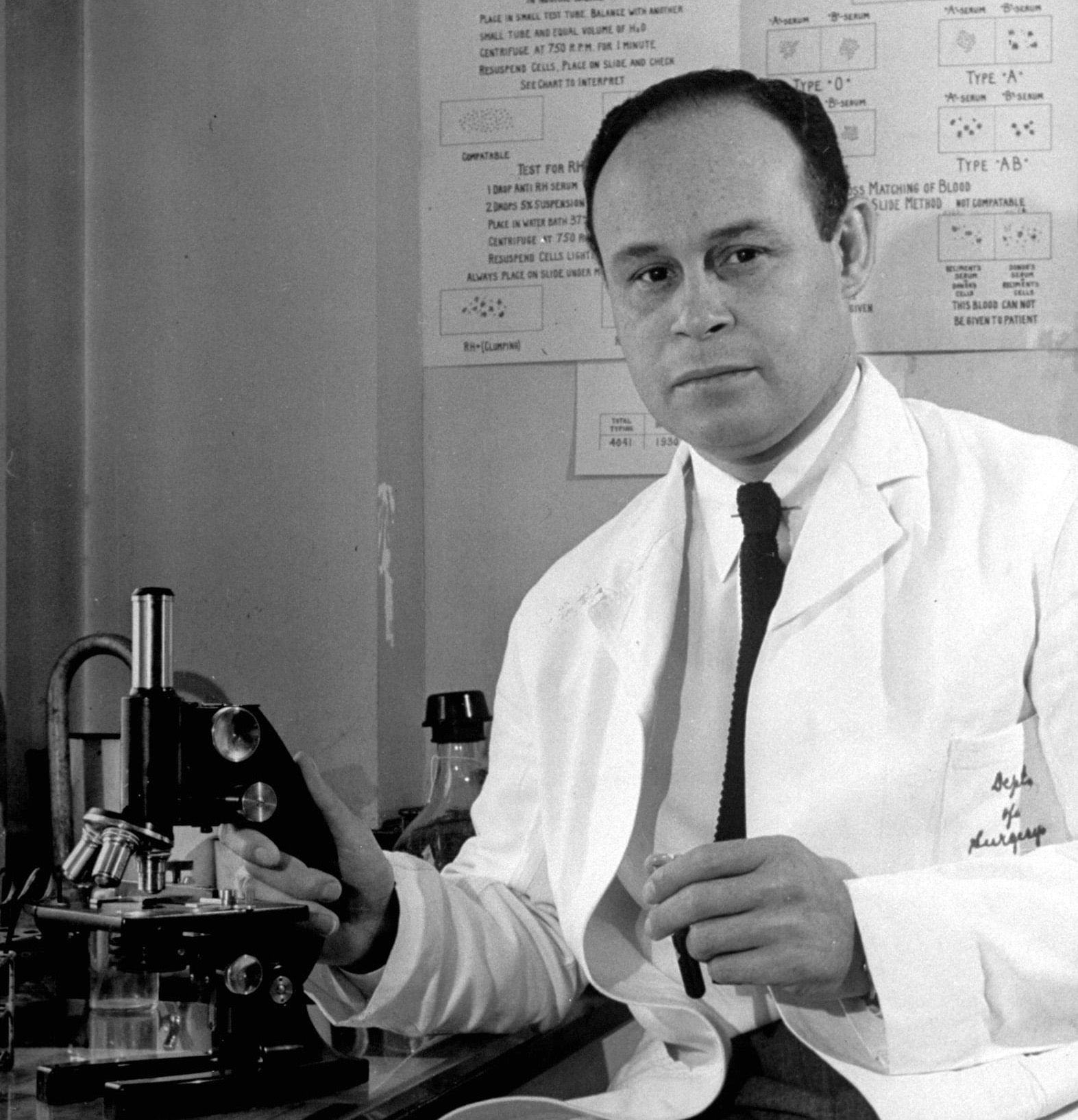Drew, Charles Richard (1904-1950), was an African American physician known for his research on blood plasma and for setting up blood banks. During the late 1930’s, he and another American physician, John Scudder, did pioneering research on the problems of fluid balance in the body, especially following trauma. They demonstrated the importance of early plasma transfusions in emergency medical situations. Plasma research was important because, at the time, plasma could be kept for much longer periods of time than could whole blood. In addition, plasma could be given to a person without waiting for blood-type studies.

During the early part of World War II (1939-1945), Drew organized many blood bank programs. He and his associates developed standardized methods for banking blood and shipping plasma overseas. The plasma collected by blood banks saved millions of lives.
Drew was born on June 3, 1904, in Washington, D.C. He graduated from McGill University Medical School in 1933. Drew did most of his research on plasma at Columbia University from 1938 to 1940. In 1941, he became medical director of the Red Cross program that collected plasma for the United States armed forces. Drew left the Red Cross in 1941 and became a professor of surgery at Howard University and chief surgeon at Freedmen’s Hospital, which is associated with Howard. The National Association for the Advancement of Colored People awarded Drew the Spingarn Medal in 1944. That same year, he was appointed chief of staff at Freedmen’s Hospital. Drew became its medical director in 1946.
Drew died as a result of injuries received in an automobile accident on April 1, 1950. A well-known, but inaccurate, account says that Drew was denied treatment at a local hospital because he was black. In fact, the hospital staff treated Drew as best they could, but he died less than three hours after the accident.
